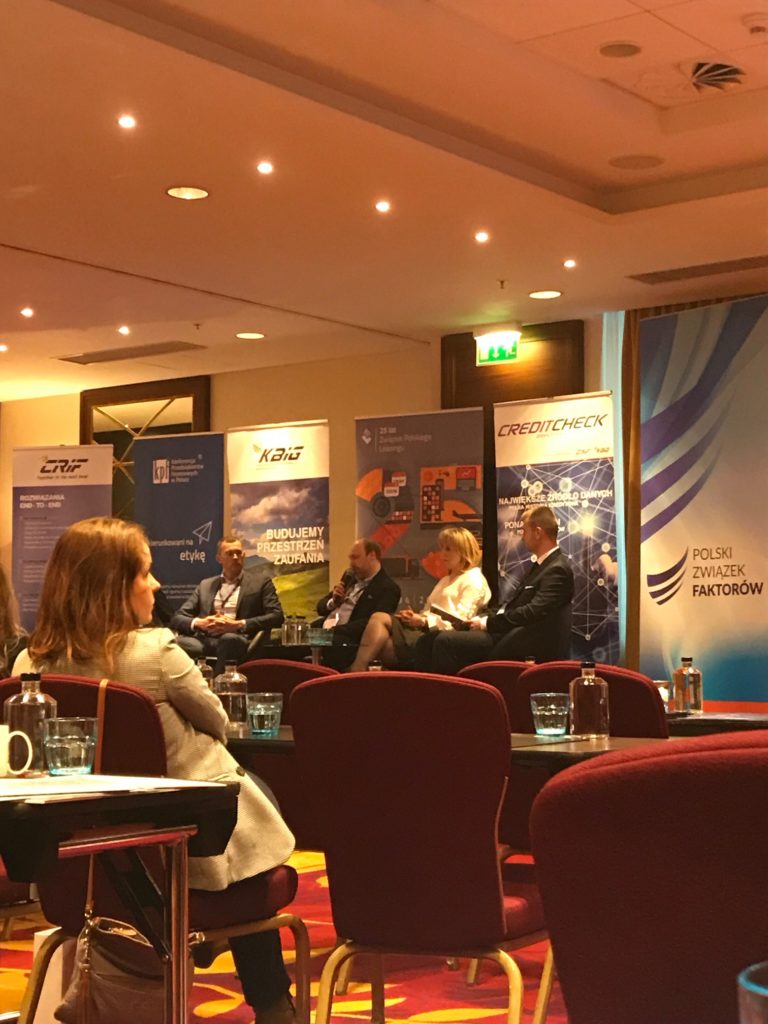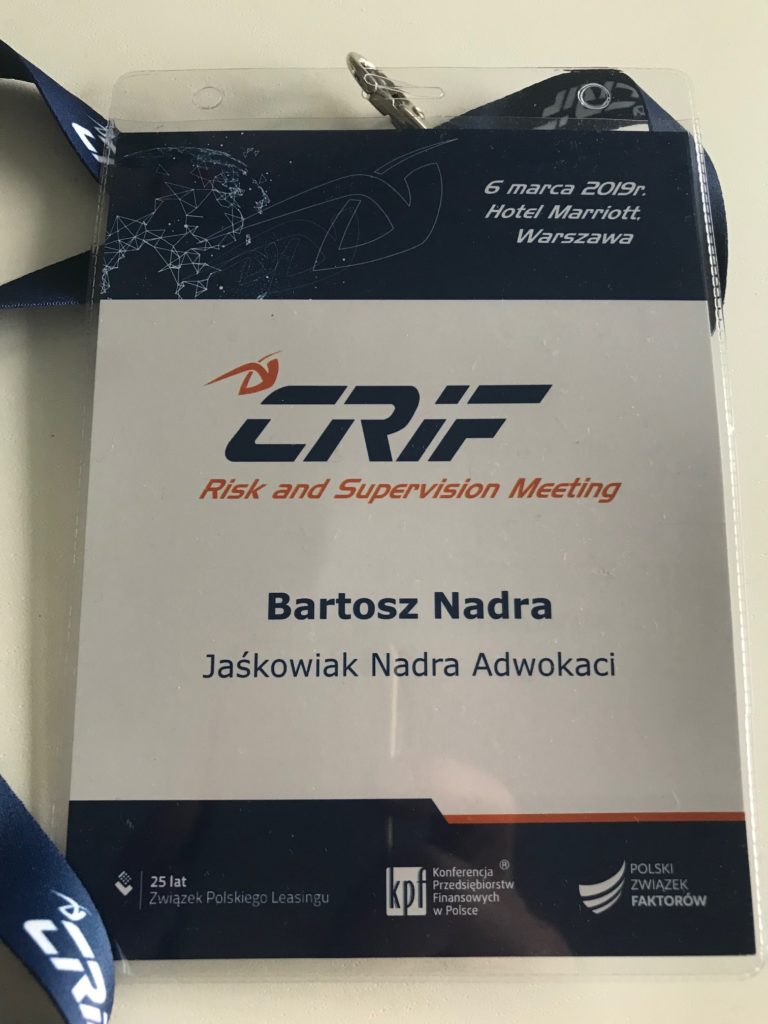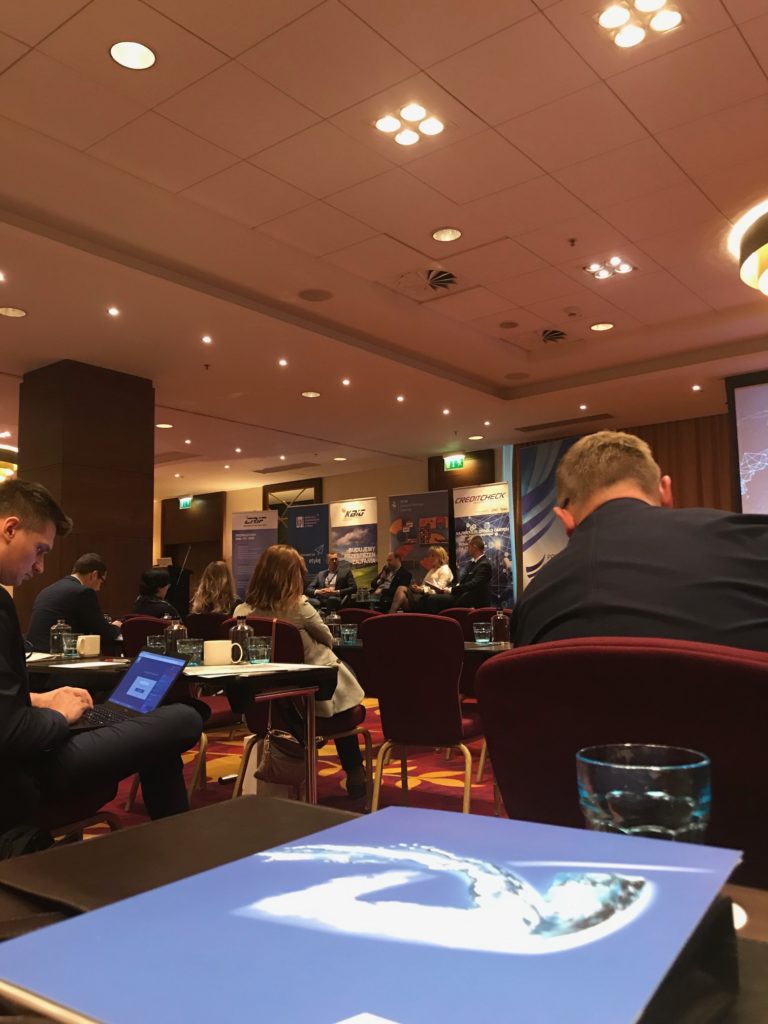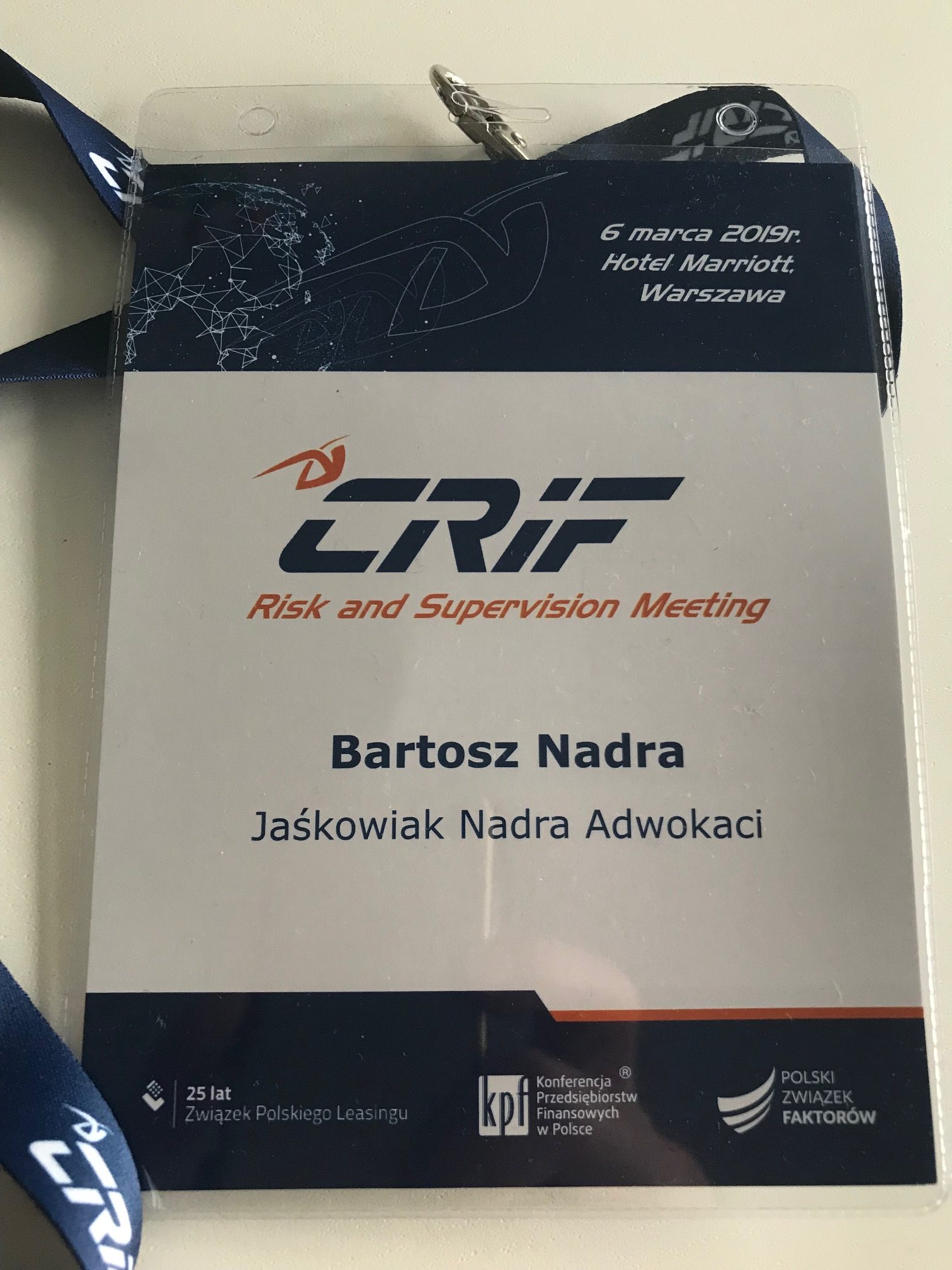On March 6, 2019, the second edition of the 'Risk and Supervision Meeting' organized by CRIF took place at the Marriott Hotel in Warsaw. 'Must-attend' event for risk managers and those responsible for anti-fraud solutions, especially in the factoring and leasing industry. Patrons of the conference included the Polish Factors Association and the Polish Leasing Association.
Below is my account of the event and observations from the angle of the factoring industry with emphasis on its legal aspects.
The event began with anti-fraud survey summaries in the leasing and factoring industry. Although its results do not constitute statistical data, one can try to read certain industry trends from them. And we can certainly include the gradual digitization of criminals and the increase in the number of cyber attacks and online fraud attempts, as well as the increasing professionalization of fraud actors. The estimated number of blocked fraud attempts of more than 500 in 2018 must give food for thought, as does the estimated potential value of fraud attempts at around PLN 100,000,000. Juxtaposing the aforementioned amounts with detected fictitious invoices of about PLN 29,000,000, one must conclude that anti-fraud prevention is an element of the compliance and risk system on which it is undoubtedly not worth saving. Also discussed were the methods of fighting fraud signaled by the respondents, the techniques of detecting fraud, and the obstacles to the effective detection of fraud.
A short lecture on digital user identity and device traces left in the network as effective tools for detecting and combating fraud undoubtedly interested the audience. Certainly, many of them thoughtfully considered the possibility of implementing the discussed solutions in terms of their own factoring applications. Technology can be an interesting tool in the context of possible disputes over the identity of a user who, for example, reported fictitious invoices in a factoring application. After all, it is easy to imagine a dispute over who reported the invoices and related attempts to shift responsibility to another person.
From the point of view of the Blog's theme, the panel discussion "Modern anti-fraud technologies", in which the participants in the discussion gave their perspective on the development of anti-fraud risk. In a sense, the discussion went in the direction of "human" vs. "machine" in terms of anti-fraud technologies, but I don't think any of the participants doubted that with regular (non-micro) factoring, the human factor is still irreplaceable and traditional anti-fraud methods, including "nose" and instinct at the current stage of technology development are irreplaceable. Attention was given to the issue of the reputation of the financial industry and its fragmentary shakiness. Also pointed out was the issue of the need to clearly distinguish between true factoring and a loan based on a VAT invoice and related VAT issues. At this point, it is worth mentioning that the PZF is preparing a code of ethics in factoring, the purpose of which is, among other things, a commitment to transparency and honesty in the operation of the factoring industry, including the products and services offered.
Also discussed during the event were upcoming legal changes in the form of especially:
- The law introducing RODO and related changes regarding scoring (which I wrote about here);
- Congestion Law, including in particular the issue of compensation (which I wrote about here, although due to the changes made to the topic I will undoubtedly return),
- Law of 9/11/2018. 'post-getback' regarding investor protection in the issuance of bonds and changes in the rules of bond issuance (obligation to use an issuance agent, dematerialization of bonds, requirement to register with the NDC, etc.);
- EU regulations on European corporate crowdfunding providers.
I have not written about the last two regulations on the Blog because of its legal framework limited to the factoring industry.
In the panel "Concerns and effects of last year's law changes" mainly discussed the experiences of leasing and factoring companies (especially compliance/legal departments) with the implementation of RODO, the new AML, split payment and a number of related challenges.
A lecture on practical insights in terms of preparing for the GIIF inspections, which, in the context of the industry's problems with transaction reporting, adapting software to the new AML and conducting beneficial owner identification, was sure to pique the interest of the audience.
In the Panel "Market needs vs. technology capabilities - Customers about CRIF" discussed, among other things, the importance of modern anti-fraud technology solutions in terms of catching fraud.
I hope the Risk & Supervision Conference will return next year for a third edition.











